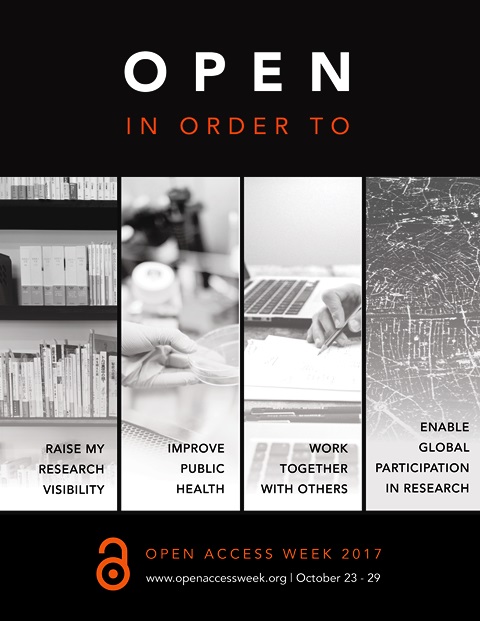Avoin tiede ja yhteiskunnallinen vaikuttavuus | Open science and its impact to the society
(Please, scroll down to read in English.)

Tieteen avaamisen paineet alkoivat vuosituhannen vaihteessa, kun huomattiin tieteellisten julkaisujen siirtyneen maksumuurien taakse. Aikaisemmin avoimesti kirjastojen kautta saadut painotuotteet olivatkin digitaalisessa maailmassa vain harvojen käytössä ja niiden kustannukset alkoivat kohota ilman, että varsinaisen työn tekijät hyötyivät näistä rahavirroista.
Poliittiset päättäjät ja tutkimusrahoittajat alkoivatkin vaatia tutkimusjulkaisujen avointa saatavuutta ja myös rahoittaa tätä toimintaa. Tutkijayhteisössä avoimella tieteellä näytetään vieläkin tarkoitettavan erityisesti tätä tutkimusjulkaisujen avaamista.
Tutkimuksen vaikuttavuuden kannalta julkaisujen avaaminen on vasta ensimmäinen askel, ja vaikuttavuudeltaan vielä suhteellisen rajallinen. Lokman I Mehon mukaan on näyttöä siitä, että tutkimusjulkaisuja käytetään suhteessa niiden määrään vähäisesti: noin 90 %:iin ei viitata lainkaan ja on jopa näyttöä siitä, että noin puolta tutkimusjulkaisuista eivät lue kuin niiden kirjoittajat ja toimitustyöhön osallistuvat henkilöt.
Tällä hetkellä tavoitteena olevan datan avaamispuheen voidaan pahimmillaan nähdä samanlaisena julkaisemista ja erityisesti sen määrää painottavan puheen jatkumona: huolta ei kanneta laadusta ja vaikuttavuudesta vaan siitä, että määrällistä näkyvyyttä lisätään.
Aito avoin tiede näyttäytyy silmissäni erityisesti tutkijayhteisön toisiaan ja yhteiskuntaa tukevalta toiminnalta. Tutkimuseettisesti ja tutkimuksen kehittymisen vuoksi on hyvää ja arvokasta avata julkaisujaan ja tutkimusdataansa, mutta tämä tulee tehdä helpottamalla kollegojen työtä: tekemällä merkityksellisiä julkaisuja ja avaamalla laadullisesti ja sisällöllisesti merkittävää dataa, joka on kuvailtu siten, että sen jatkokäyttö mahdollistuu.
Varsinainen tutkimuksen yhteiskunnallinen vaikuttavuus tulee siitä, että tutkijayhteisö kohtaa kansalaiset ja heidän muodostamansa yhteisöt siellä, missä ihmiset elävät ja toimivat. Avoin tiede on siten avointa vaikuttamista kaikilla kanavilla. Valeuutispuheesta sen erottaa se, että keskustelu ja sen argumentointi perustuu tutkimusnäyttöön ja kriittiseen arviointiin.

The pressures to open the science to the public started at the beginning of this millennium when it was noticed that the scientific publications had gone behind the paywall. The previously open use of the printed works via libraries was not possible in the digital realm, when only those inside the paywall were able to utilize these resources. In addition, the costs started to rise and at the same time the people who did the real work were left out form the financial benefits of the commercialised scientific publishing industry.
The decision makers and research funders started to insist on open access to scientific publications and they also started to fund this initiative. Thus, at the present the discussion about the open science within the scientific community in mainly about the open access to the publications.
When one considers the impact of the research, the opening of the publications is just the first step and actually quite marginal when one speaks about the impact of the science on the community. Lokman I Meho states that there is evidence that the actual use of the scientific publications is quite low: about 90 % of the publicatíons are not cited; there is even evidence that about half of the papers are not read at all, except for the writers and editors.
The present discussion about opening research data seems to be a continuation of the same discourse that is about the quantity of research: the focus is mainly in opening the vast masses of the research work and not so much about the actual quality and impact of the opened resources.
In my mind, real open science is particularly about actions that help and enable the other researchers and the human community to utilize the scientific results in their daily lives. Ethically, andin order to facilitate the progress of the science it is good and valuable to open publications and data, but in a manner that supports the work of colleagues: by writing meaningful publications and by opening meaningful and contentful data, that is described in order to be readily reused.
The actual societal impact of the scientific work emanates from situations where the scientific research meets with the citizens in their daily surroundings. Open science is thus about being present in all possible media and discussions. The difference here compared with the fake news type of communication is that this discussion and argumentation are based on scientific evidence and critical evaluation.
Jarmo Saarti, kirjastonjohtaja | Library director